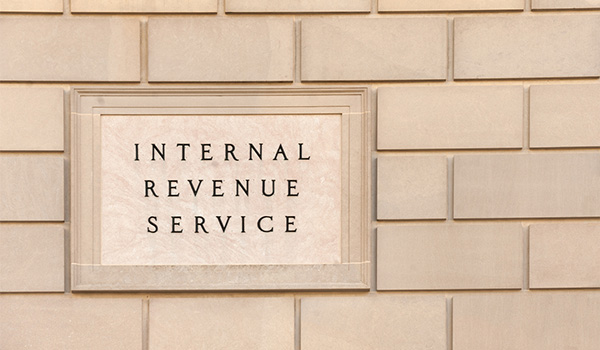08-8-2022 |
IRS Issues Revised Revenue Procedure for Late Portability Elections
By: Kirsten E. Johanson & Katheryn J. Thorson

On July 8, 2022, the IRS issued a revised Revenue Procedure, Rev. Proc. 2022-32, providing for a late portability election to qualifying estates. The new procedure extends the time period in which the simplified method to make a late portability election can be filed. Rev. Proc. 2022-32 allows the simplified method to be used on or before the fifth-year anniversary of the decedent’s death. Whereas Rev. Proc. 2017-34, allowed the simplified method to be used before the two-year anniversary of the decedent’s date of death.
The new Rev. Proc. provides a simplified method to obtain an extension of time under § 301.9100-3 of the Procedure and Administration Regulations to file a portability election under § 2010(c)(5)(A) of the Internal Revenue Code (“Code”). The portability election allows a decedent’s unused exclusion amount to be applied to the surviving spouse’s subsequent transfers during life or at death. However, under § 20.2010-2(a)(1) of the Estate Tax Regulations, the portability election must be made within nine months of the decedent’s death for estates that are not required to file an estate tax return under § 6018(a) of the Code. Therefore, the extension is valuable for estates who miss that short deadline. Rev. Proc. 2022-32 supersedes Rev. Proc. 2017-34, providing a now five-year extension period from the decedent’s date of death versus just a two-year extension. The new procedure offers a way for executors to avoid the inefficient and expensive private letter ruling process to obtain the benefit of election.
The original election period is already a tight time window to make the portability election, and the two-year simplified method extension did not provide enough support for estates who failed to elect within the first 9 months of the decedent’s death. The IRS has seen an influx of private letter ruling requests, specifically from estates of decedents who died within five years preceding the date of the request. It was determined that these requests posed a burden on the IRS’ resources and the jump in private letter rulings indicated a need for relief for estates of decedents having no filing requirement under § 6018(a). Therefore, the IRS extended the period in which the estate of the decedent could make the portability election under the simplified method, avoiding the long, expensive private letter ruling process, to allow election on or before the fifth anniversary of the decedent’s date of death.
As provided by § 20.2010-2(a)(6), the simplified method of requesting an extension to elect portability is available to the executor if
- The decedent:
- Was survived by a spouse;
- Died after December 31, 2010; and
- Was a citizen or resident of the United States on the date of death.
- The executor is not required to file an estate tax return under § 6018(a) as determined based on the value of the gross estate and adjusted taxable gifts and without regard to the need to file for portability purposes;
- The executor did not file an estate tax return within the time required by § 20.2010-2(a)(1) for filing an estate tax return; and
- The executor satisfies all requirements of section 4.01 of this revenue procedure, meaning the executor files Form 706 under the procedures that are outlined to make a late portability election.
The Form 706, United States Estate (and Generation-Skipping Transfer) Tax Return, must be filled out in accordance with § 20.2010-2(a)(6) on or before the fifth annual anniversary of the decedent’s date of death. The executor filing Form 706 must state at the top of the form that the return is “FILED PURSUANT TO REV. PROC. 2022-32 TO ELECT PORTABILITY UNDER § 2010(c)(5)(A).” If this is filed correctly, the portability election will be treated as if it was properly made by the estate and the DSUE amount of the decedent is available to the decedent’s surviving spouse or the estate.
However, the use of Rev. Proc. 2022-32 is not available to an estate that is required to file an estate tax return under § 6018(a) because the due date of the election is prescribed by statute, not by regulation. Additionally, the simplified method is not available to the estate of a decedent whose executor filed an estate tax return on time, as the executor would have elected portability or opted out when filing.
The burden of showing the estate is qualified for the simplified method of extending the election period falls on the estate. Therefore, the surviving spouse and the estate should maintain records that clearly show the decedent’s estate did not require the filing of an estate tax return.
The five-year portability election extension is effective as of July 8, 2022, meaning estates that have missed the two-year deadline are now able to use the simplified method and dodge the private letter ruling process.
If you have any questions about this new revenue procedure or wish to discuss any other estate or trust administration needs, please do not hesitate to contact one of BrownWinick’s estate planning attorneys.
Special thanks to summer associate Emily Bell for her assistance in the writing and research of this blog.

